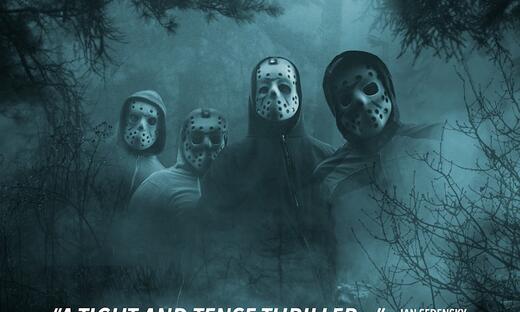Following a surprisingly subdued performance at their recent International campaign, where the formidable Team Spirit secured a 9-13th place finish and approximately $46,000, fans and analysts alike have pondered the reasons behind the champions` stumble. In a rare display of introspection, Captain Yaroslav “Miposhka” Naidenov and Coach Ayrat “Silent” Gaziev offered a frank post-mortem of their journey in a recent team vlog. Their insights paint a picture not just of strategic missteps, but of a deeper malaise that plagued the squad.
The Thorny Path of Preparation
The duo’s reflections began with the foundational phase: preparation. Miposhka minced no words regarding the difficulties imposed by a stand-in, specifically mentioning their teammate Den.
“It felt like things started going wrong even with the preparation,” Miposhka stated. “We had to play with a stand-in. To some extent, it irritated me that we`d play with one player, then another, then another again. This impacted our preparation – I`m not sure, perhaps for specific heroes or trying out strategies. We constantly had to adapt, adjust to different players. I believe this is where everything began to unravel. We found ourselves in a situation where Den couldn`t start practicing with us immediately.”
Silent, ever the pragmatist, acknowledged the inconvenience but downplayed its overall impact on their game quality. “It felt minor,” he mused. “Unpleasant, but we were still playing, still trying things. I don`t think it significantly affected how we played or the team`s overall level.” A testament, perhaps, to the high standards they hold, where a mere “minor unpleasantness” might indeed ripple through a top-tier roster.
A Team Adrift: Strategic Drift and Execution Flaws
Despite Silent`s assessment of the preparation, both agreed that the team’s overall gameplay was, to put it mildly, “so-so.” This mediocrity, they explained, was a vicious cycle of poor picks and poor execution. Miposhka concisely summarized it as “interconnected things.”
“You play badly, and it`s hard to pick good heroes,” Silent elaborated. “You have bad heroes, and it`s hard to play well. Though at times, I feel we even had good setups to win. But we played… foolishly. Our individual and team level was extremely low, to be honest. Sometimes, there were just so many silly mistakes, uncharacteristic, perhaps, for this team or these players.”
The most striking confession, however, revolved around their inability to establish a cohesive strategic blueprint. Silent highlighted a persistent issue:
“We simply couldn`t agree. If you noticed, in this tournament, we gave away almost all first Roshans and Tormentors. We just scatter across the map like cockroaches. Even when we`d reviewed replays and discussed that we needed to group up, place vision, prepare – it just happened repeatedly. Everyone forgot, scattered.”
Miposhka echoed this sentiment, adding, “Everyone just thinks about their own thing anyway.” The image of champions scattering like insects, unable to secure fundamental objectives, offers a rather stark and ironic contrast to their previous displays of synchronized dominance.
The Weight of Weariness: Morale and Burnout
Beyond the in-game mechanics, the mental and physical toll on the team emerged as a significant factor. Miposhka observed a stark contrast in morale compared to their performance at Riyadh Masters 2025 (likely referencing a previous successful iteration). “The difference was at least one and a half times,” he estimated. Silent attributed this to immediate losses, noting that “when you win, you have good momentum.”
The atmosphere was distinctly “non-positive.” Faces were gloomy, and the manner of their defeats seemed to sting more than the losses themselves. The grueling schedule of online scrims from home, a brief bootcamp, travel, and more bootcamp sessions, culminating in an unpleasant journey, clearly took its toll. Silent described the team arriving “poisoned,” burdened by individual and collective weakness.
“We felt very sluggish, to be honest,” Silent admitted. “It seemed like everyone carried a heaviness, as if you were forced to play against your will. This started at the end of the bootcamp; we talked about it: the guys had no motivation, as if everyone was there reluctantly, against their will. We arrived at the tournament as if poisoned, with some individual and team weakness. No one probably wanted to open their mouth unnecessarily. There was definitely no enthusiasm when we arrived, for everyone to be like, `Yes, let`s go, let`s play.`”
Even champions, it seems, are not immune to burnout and the soul-crushing weight of underperformance. The ability to overcome this later, but not improve their play, underscores the deep-seated nature of their struggles.
An Uncertain Horizon
The most poignant takeaway from their candid discussion was Miposhka`s simple yet profound conclusion: “We couldn`t become a team.” This statement encapsulates the myriad issues they faced, from communication breakdowns to a lack of shared vision and collective will.
Looking ahead, the future of Team Spirit remains shrouded in uncertainty. Miposhka offered no concrete plans, stating, “As for future plans, everything is still unclear. We`ll live and see. Follow the news. There will be news.”
Both players extended their gratitude to the fans, acknowledging the immense hopes placed upon them and the inevitable disappointment. “It was quite painful to watch,” Silent confessed, echoing the sentiments of many who witnessed their campaign. “We couldn`t show our best game, we couldn`t be in our best moral state – neither as a team nor individually. Very little worked out at all.” Miposhka agreed, lamenting that “essentially, there was a drawdown in every aspect.”
The journey of Team Spirit, from celebrated champions to a team grappling with fundamental issues, serves as a powerful reminder of the relentless pressures in professional esports. Their honest appraisal provides invaluable insight into the delicate balance required for sustained success, where even the slightest fracture in cohesion, morale, or preparation can cascade into a complete unraveling on the biggest stage.







